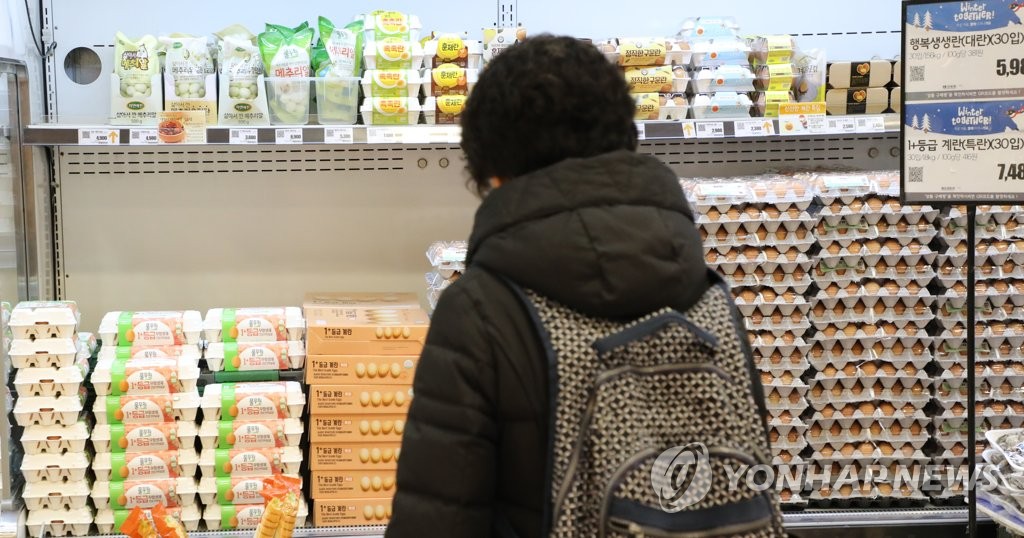Killing 8.44 million laying hens… Tariff exemption at the time of’egg wave’ in 2017

Citizens are buying eggs at the Lotte Mart Seoul Station branch on the 17th. [연합뉴스 자료사진]
(Seoul = Yonhap News) Reporter Eunji Go = As egg prices continue to rise due to highly pathogenic avian influenza (AI), the government is reviewing various measures, including lowering tariffs on imported eggs.
According to the government on the 19th, as egg prices recently showed a sharp rise, the government is discussing ways to lower the tariff rate by applying a quota tariff on imported eggs to stabilize egg prices.
The quota tariff is a tariff imposed based on a certain quota of imported goods. It can be flexibly imposed according to domestic and international conditions, and is applied when certain goods are actively imported to facilitate the supply and demand of goods or, conversely, when imports are to be suppressed.
When trying to increase imports, 40% of the basic tariff rate can be reduced up to a certain quota of the imports.
Currently, tariff rates for eggs and processed egg products are lower than 40%, including fresh eggs (27%), so tariff exemption is possible.
When this plan is confirmed through discussions between relevant ministries, it is expected to be included in the’Secure People’s Livelihoods’ Plan to be announced on the 20th.
As of 0 o’clock on this day, 8439,000 laying hens were killed due to highly pathogenic AI. This is much more than the total number of 1623 thousand ducks and 5444,000 broilers combined.
The consumer price of one egg (30 special eggs) was 6,705 won as of the previous day. After the highly pathogenic AI was confirmed at the poultry farm on November 26 last year, it started to rise and soared 20.5%.

[연합뉴스 자료사진]
Earlier, in 2016-2017, the price of a single egg reached 10,000 won, and the so-called’egg wave’ occurred.
At the time, the government exempted import duties from January 2017 and imported eggs and processed eggs from the United States and Spain. Afterwards, the price of eggs gradually decreased and reached 5,000 won in September of that year.
The current situation is not yet at the level of 2017, but it is an uneasy situation as highly pathogenic AI continues to occur nationwide.
Moreover, unlike chickens and ducks that have frozen stocks, there is no sharp plan to increase supply of eggs in the short term in Korea, so import tariff reduction cards are being considered as one of the alternatives.
Meanwhile, highly pathogenic AI has occurred in 64 poultry farms in Korea and two experience farms so far, and in addition, reports of suspicion of laying hen farms in Eumseong, Chungbuk and Yongin, Gyeonggi have been reported, and detailed inspections are in progress.
Unauthorized reproduction-redistribution prohibited>
2021/01/19 16:50 sent
